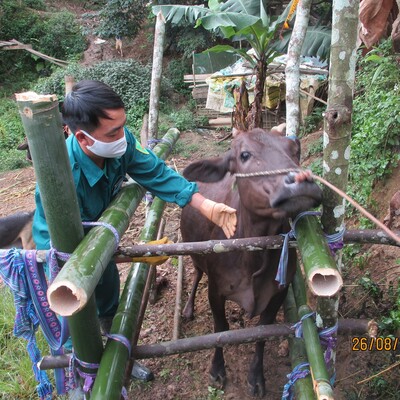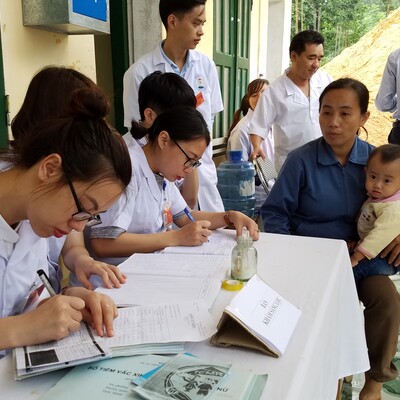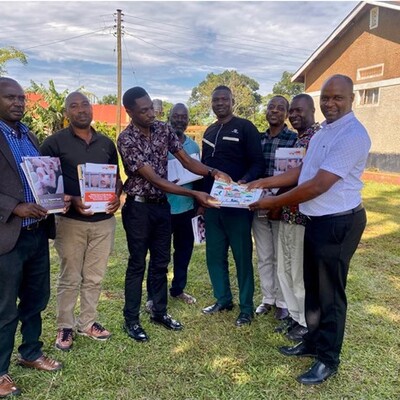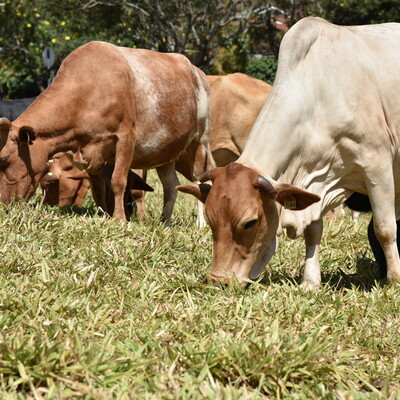
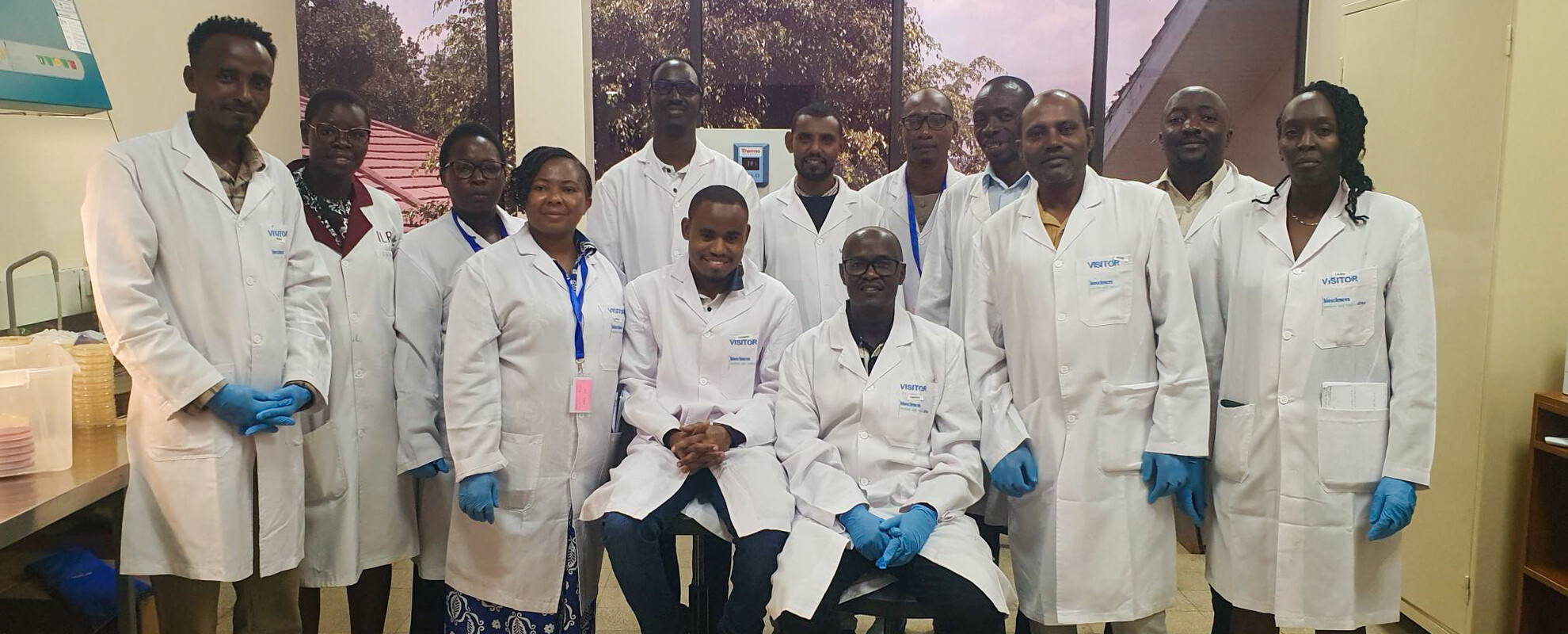
Improving antimicrobial diagnostic capabilities in East African veterinary laboratories
ILRI News
Posted on
by
- Ianetta Mutie
Contributors
In the ongoing battle against antimicrobial resistance (AMR), building robust and sustainable microbiological capacity remains a critical pillar—supporting surveillance, timely detection, and coordinated action under the One Health approach. From 7-11 April 2025, veterinary microbiologists gathered for an Advanced Microbiology Training workshop at the International Livestock Research Institute (ILRI) AMR Hub in Nairobi, Kenya.
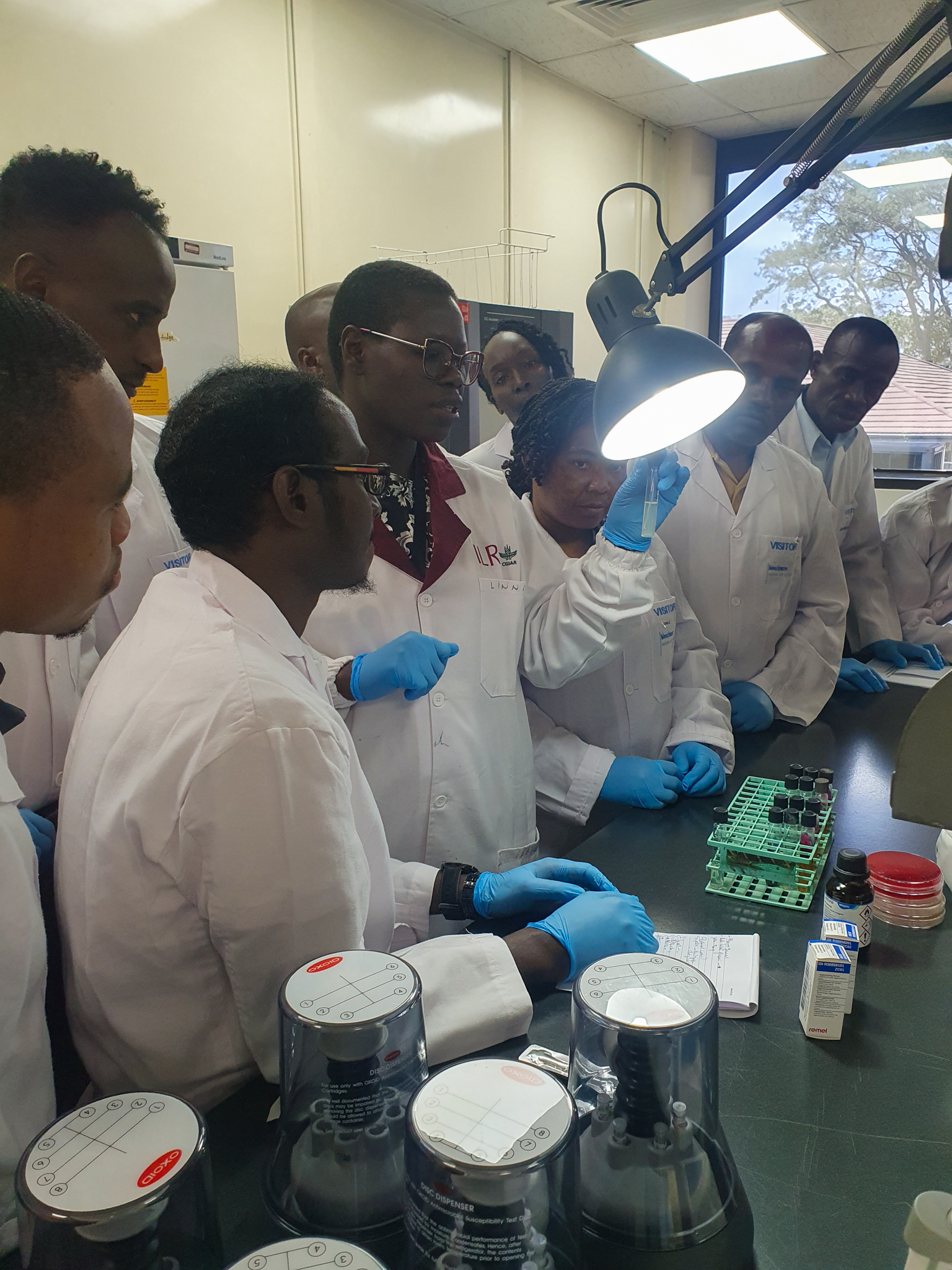
With support from the R’OHOKET project, funded by the French Ministry of Foreign Affairs, the training brought together 12 microbiologists from national veterinary laboratories in Uganda, Ethiopia, Kenya and Tanzania.
Before the training began, some participants reflected on their motivations and expectations.
One participant shared: "I’m hoping to polish my microbiological skills—it's important that I stay updated with current techniques and tools."
Another noted, "I want to learn how to standardize our laboratory protocols and bring back best practices to my institution."
The training combined hands-on laboratory work, lectures, and group discussions. The facilitator guided participants through advanced diagnostic techniques and quality assurance practices.
Why it matters
This training was more than a technical exercise—it was an investment in local capacity, collaboration, and long-term action against AMR in East Africa.
AMR is one of the leading global threats to public health and development, contributing to an estimated 4.95 million deaths in 2019 and imposing substantial economic burdens. In many low- and middle-income countries, limited laboratory capacity continues to hinder early detection and data-driven decision-making.
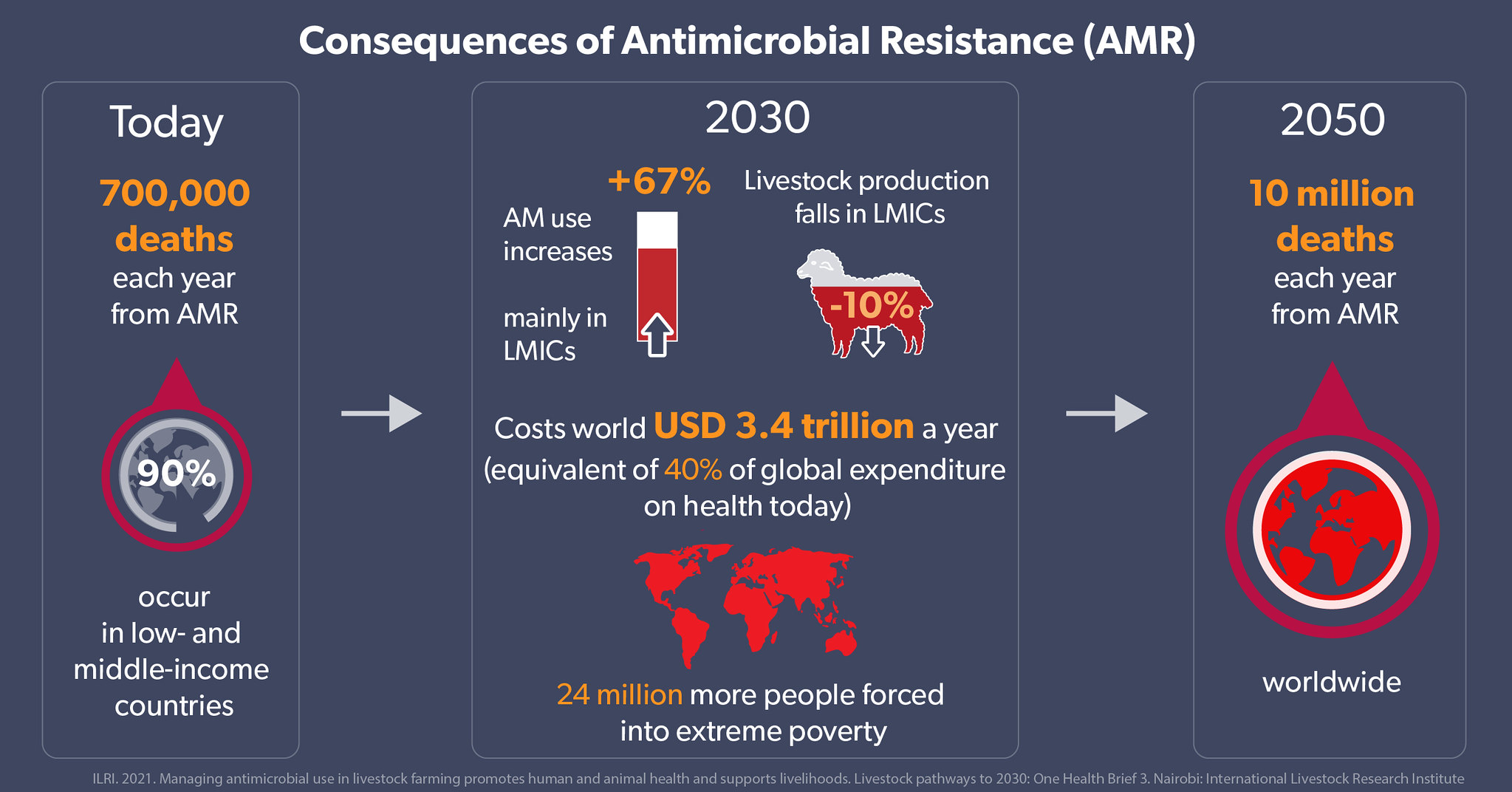
In our recent hands-on training with laboratory staff one thing became clear: strengthening diagnostic capacity is key to combating AMR in the region.
Effective diagnostics enable accurate identification of pathogens and their antimicrobial resistance profiles. This allows for evidence-based treatment decisions, reducing the misuse of antibiotics—a major driver of AMR. In veterinary settings, this is especially critical to ensure animal health and food safety while preserving the effectiveness of life-saving antimicrobials.
Equipping regional lab teams with practical skills in bacterial identification and isolation, antimicrobial susceptibility testing, and quality control, not only supports clinical decision-making, but also contributes to stronger AMR surveillance systems. Reliable lab data is essential for informing treatment guidelines and shaping national and regional AMR strategies.
This training was more than a technical exercise—it was an investment in local capacity, collaboration, and long-term action against AMR in East Africa.
This training allowed peer-to-peer learning and collaboration. Participants from the four countries had the opportunity to share challenges and practical solutions from their own settings, fostering a network that can support regional AMR efforts moving forward.
As the participants return to their respective institutions, they do so with renewed knowledge, practical tools, and a shared commitment to advancing the battle against AMR. The impact of this training will be felt far beyond the laboratory bench.
Testimonies from the participants:
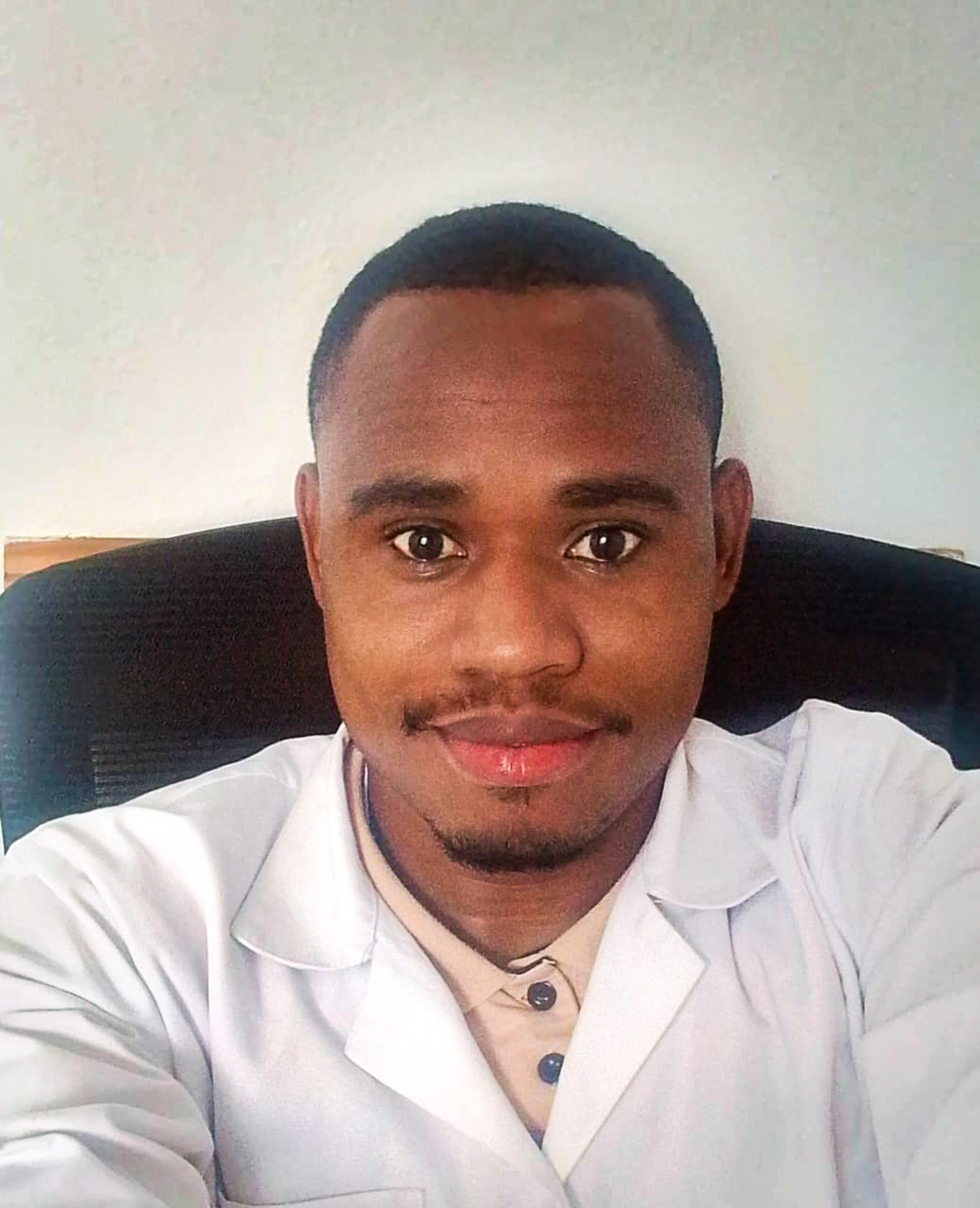
1. Hussein Kazungu, laboratory analyst, National Veterinary Reference Laboratory, Kenya
“The advanced microbiology training was highly insightful. It provided an excellent opportunity to refine my knowledge in key areas such as quality control in media preparation and accurate interpretation of zone diameter results."
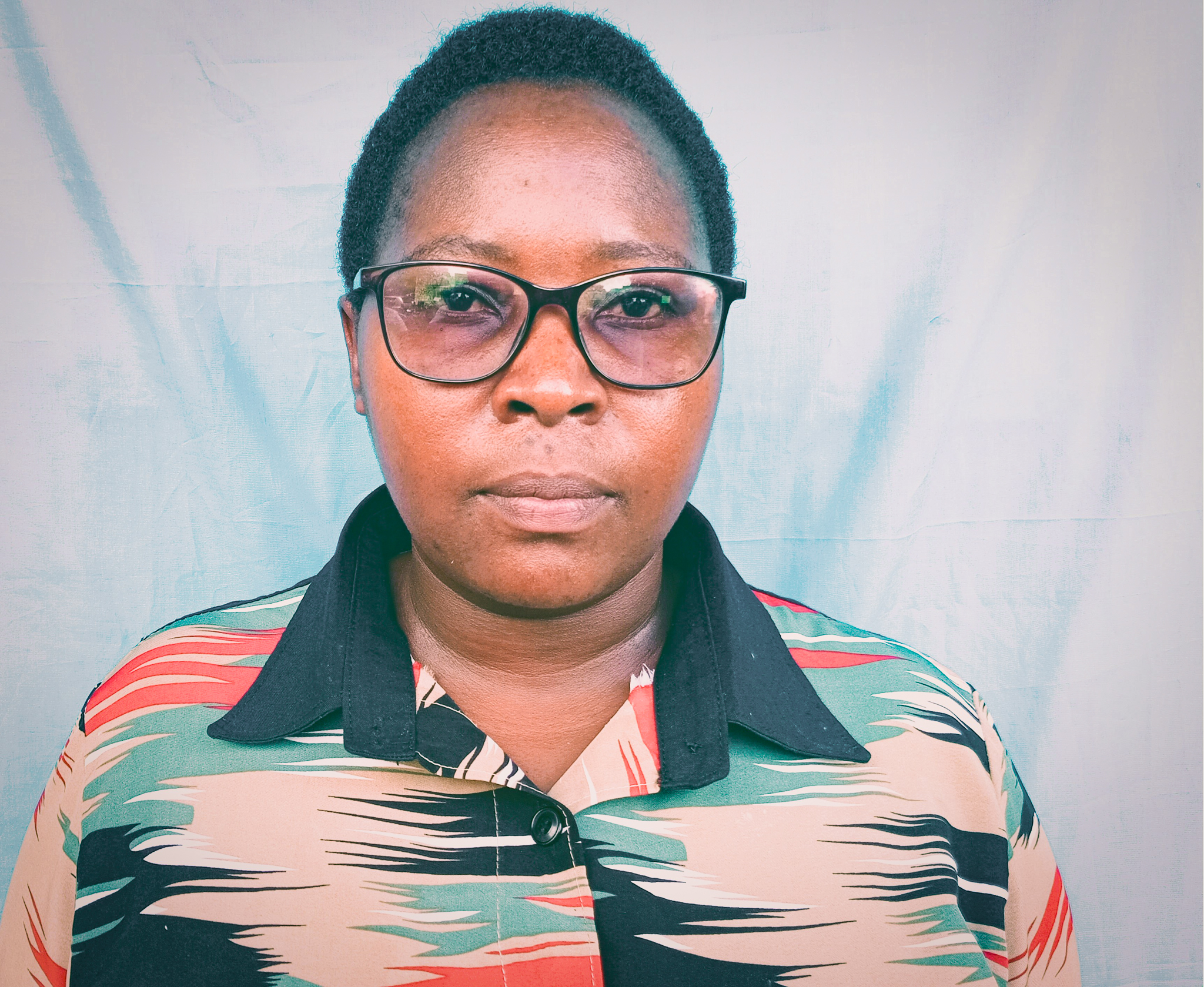 2. Tumwi Salah, livestock research officer, Central Veterinary Laboratory, Tanzania
2. Tumwi Salah, livestock research officer, Central Veterinary Laboratory, Tanzania
“Participating in this training has significantly enhanced my technical microbiology skills. I learned how to accurately interpret zone diameters and perform bacterial identification. The session on Good Laboratory Practices was particularly valuable."
 3. Hannington Kato, laboratory technologist, Ministry of Agriculture, Animal Industry and Fisheries, Uganda
3. Hannington Kato, laboratory technologist, Ministry of Agriculture, Animal Industry and Fisheries, Uganda
"What stood out for me was learning how to use the EUCAST reference standards and gaining a deeper appreciation for the importance of proper lighting when reading zone diameters.”
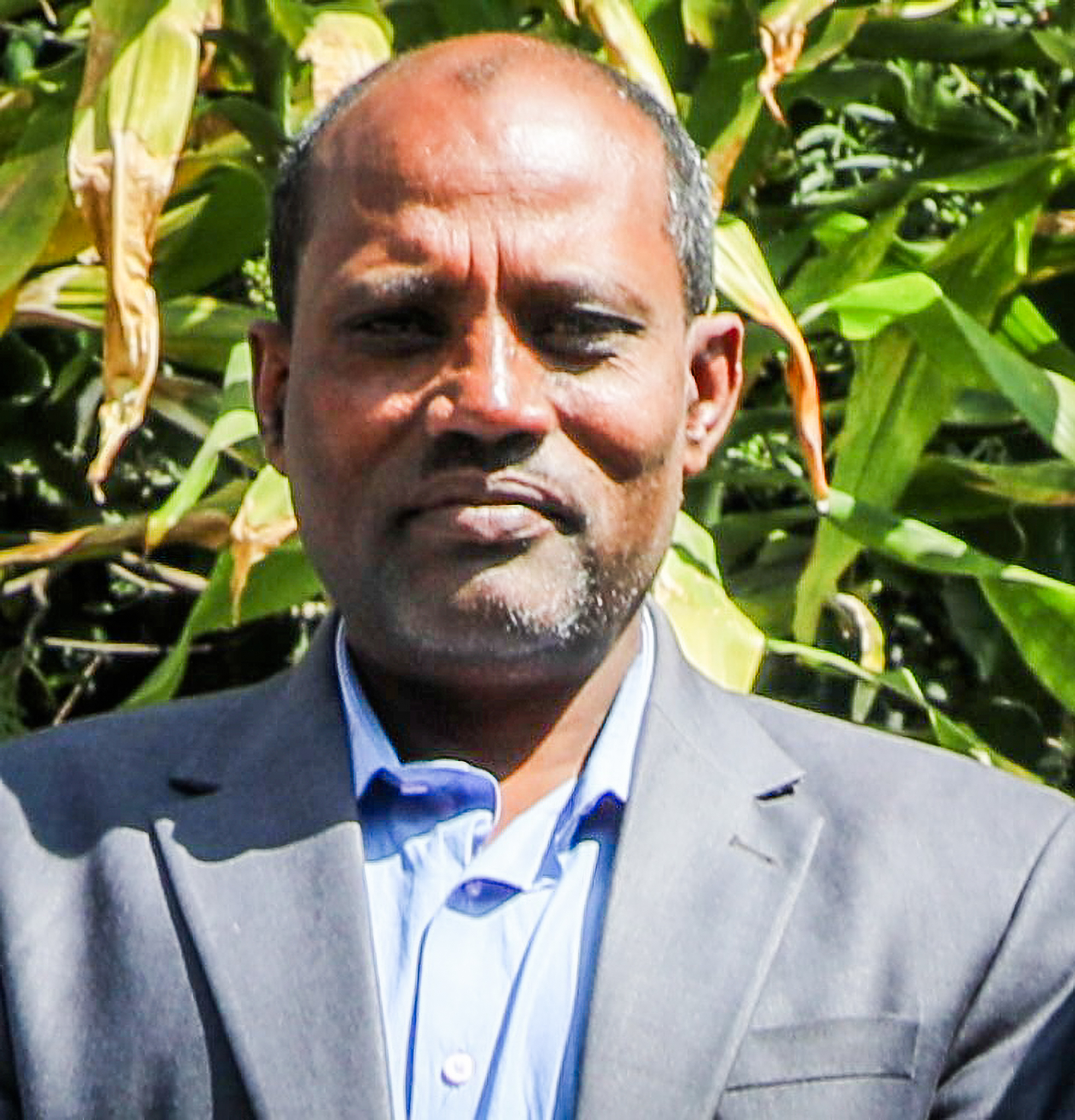 4. Abebe Olani, researcher, Animal Health Institute, Ethiopia
4. Abebe Olani, researcher, Animal Health Institute, Ethiopia
“This training was a game changer. I improved my skills in AST and quality control procedures.”
Linnet Ochieng, who led the training, said: “This training went beyond just techniques; it aimed to build confidence and consistency in bacteriology testing and antimicrobial resistance detection. We emphasized hands-on techniques, including bacterial identification, AST using both disk diffusion and broth microdilution methods, and interpreting results according to CLSI and EUCAST standards. Participants also learned how to apply quality control strains and evaluate the reliability of their AST data. This peer-to-peer training is a crucial first step in building regional capacity for harmonized and high-quality antimicrobial susceptibility testing, enabling more reliable AMR detection and data sharing.”
Dishon Muloi, the project lead said: “Diagnostics are like a torch in the dark — they guide treatment decisions and underpin antimicrobial stewardship. We’re proud to support regional efforts to strengthen diagnostic systems and promote the responsible use of veterinary medicines.”
You may also like
Related Publications
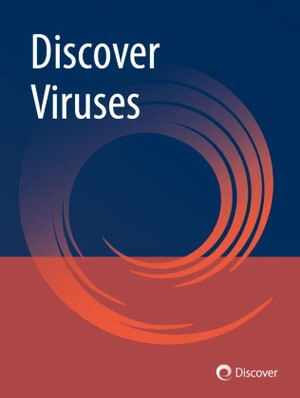
Drama-based mobile phone-delivered virtual learning as a way to support improved biosecurity in smallholder pig farming
- Chenais, E.
- Fischer, K.
- Kagolobya, R.
- Dione, Michel M.
- Ståhl, K.
- Sternberg-Lewerin, S.
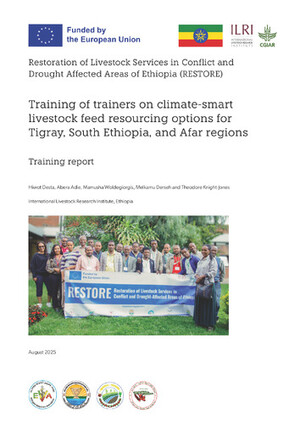
Training of trainers on climate-smart livestock feed resourcing options for Tigray, South Ethiopia, and Afar regions
- Desta, Hiwot
- Adie, Aberra
- Lemma, Mamusha
- Bezabih, Melkamu
- Knight-Jones, Theodore J.D.
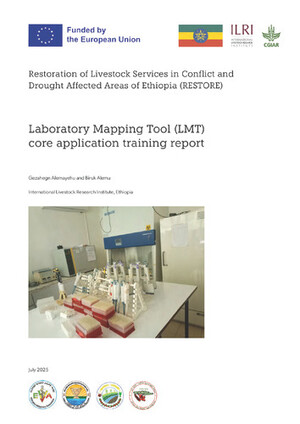
Restoration of Livestock Services in Conflict and Drought Affected Areas of Ethiopia (RESTORE): Laboratory Mapping Tool (LMT) core application training report
- Alemayehu, Gezahegn
- Alemu, Biruk G.
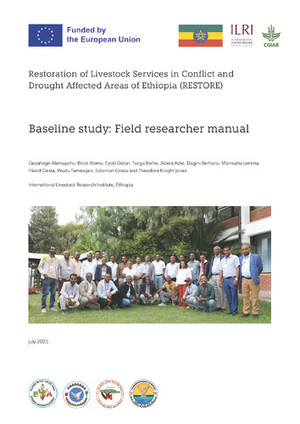
Restoration of Livestock Services in Conflict and Drought Affected Areas of Ethiopia (RESTORE) baseline study: Field researcher manual
- Alemayehu, Gezahegn
- Alemu, Biruk G.
- Gelan, Eyob
- Berhe, Tsega
- Adie, Aberra
- Berhanu, Dagim
- Lemma, Mamusha
- Desta, Hiwot
- Temesgen, Wudu
- Gizaw, Solomon
- Knight-Jones, Theodore J.D.
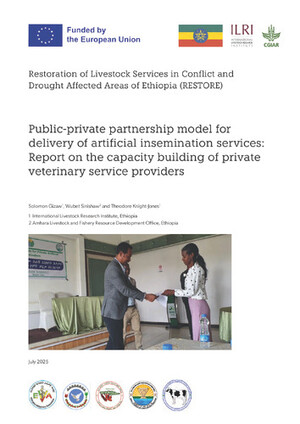
Public-private partnership model for delivery of artificial insemination service: Report on the capacity building of private veterinary service providers
- Gizaw, Solomon
- Sinishaw, W.
- Knight-Jones, Theodore J.D.
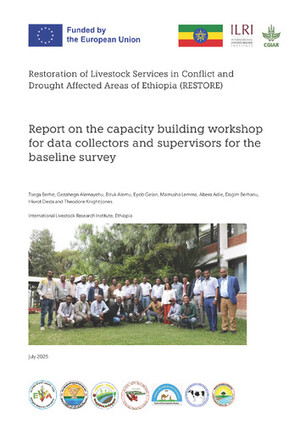
Restoration of Livestock Services in Conflict and Drought Affected Areas of Ethiopia (RESTORE): Report on the capacity building workshop for data collectors and supervisors for the baseline survey
- Berhe, Tsega
- Alemayehu, Gezahegn
- Alemu, Biruk G.
- Gelan, Eyob
- Lemma, Mamusha
- Adie, Aberra
- Berhanu, Dagim
- Desta, Hiwot
- Knight-Jones, Theodore J.D.





